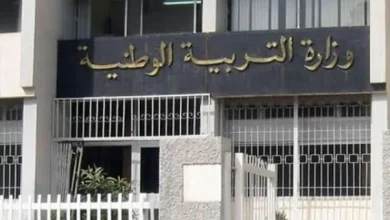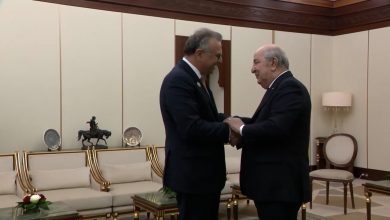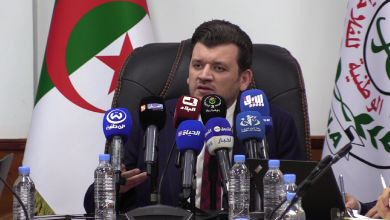Antananarivo, Madagascar – In a dramatic turn of events that has sent shockwaves through the Malagasy political landscape, authorities in Madagascar have revoked the citizenship of former President Andry Rajoelina. The move, announced earlier today, is being widely interpreted as a devastating blow to his political future, following weeks of intense public protests and his subsequent removal from office.
The decision to strip Rajoelina of his citizenship stems from allegations that he secretly acquired French citizenship in 2014 through naturalization. According to Article 4 of Madagascar’s nationality law, any Malagasy citizen who voluntarily acquires a foreign nationality automatically forfeits their original citizenship. While Rajoelina allegedly concealed his French nationality for years, the recent political turmoil that culminated in his ouster on October 14th, following a wave of youth-led protests, brought the issue to the forefront.
“This is a matter of upholding the rule of law,” stated a government spokesperson during a press conference in Antananarivo. “No one is above the law, and the acquisition of dual citizenship while holding the highest office in the land is a clear violation of our constitution and nationality laws.” The spokesperson declined to comment on the specifics of the investigation that led to the confirmation of Rajoelina’s French citizenship but emphasized the government’s commitment to transparency and accountability.
Political analysts in Madagascar suggest that the revocation of Rajoelina’s citizenship effectively ends his political career. Without Malagasy citizenship, he is no longer eligible to hold public office or participate in any future elections. The move is seen as a significant victory for the “Generation Z” protesters who spearheaded the movement to oust him, accusing his administration of corruption, economic mismanagement, and a lack of responsiveness to the needs of the Malagasy people.
“This is a new dawn for Madagascar,” declared one of the protest leaders during a rally in the capital. “We have shown that the power of the people can overcome even the most entrenched political forces. We demand a government that is accountable, transparent, and committed to serving the interests of all Malagasy citizens.” The protests, which began several weeks ago, were initially sparked by rising inflation, widespread poverty, and allegations of government corruption. They quickly gained momentum, fueled by social media and the mobilization of young people who felt disenfranchised and ignored by the political establishment.
Adding to the former president’s woes, authorities in Mauritius have arrested Maminiana Ravatomanga, a close aide and business associate of Rajoelina, on charges of money laundering. Ravatomanga, who reportedly fled to Mauritius as Rajoelina’s political fortunes waned, is accused of using his position to illicitly transfer funds out of Madagascar. The arrest further implicates Rajoelina’s inner circle in alleged financial crimes and underscores the government’s determination to pursue those suspected of corruption.
The Mauritian Financial Crimes Commission confirmed the arrest in a statement, stating that Ravatomanga is being held pending further investigation and extradition proceedings. The statement also indicated that the commission is cooperating with Malagasy authorities in the investigation, suggesting a coordinated effort to uncover the full extent of the alleged money laundering scheme.
For more information about Economie, check our dedicated section.
The unfolding events have further complicated the already fragile political situation in Madagascar. The country is currently in a transitional period following Rajoelina’s removal from office, with an interim government tasked with organizing new elections and restoring stability. The political landscape remains deeply divided, with various factions vying for power and influence. The revocation of Rajoelina’s citizenship and the arrest of his associate have added another layer of uncertainty to the transition process.
The international community is closely monitoring the situation in Madagascar, with many countries calling for a peaceful and democratic transition of power. The African Union and the United Nations have also expressed their concern about the political instability and have urged all parties to engage in constructive dialogue to resolve their differences.
Some observers have raised concerns about the potential for further unrest and violence in the coming weeks. Rajoelina still enjoys significant support among certain segments of the population, and his supporters may view the revocation of his citizenship as a politically motivated act of revenge. The interim government has called for calm and restraint, urging all citizens to respect the rule of law and refrain from any actions that could destabilize the country.
The future of Madagascar remains uncertain, but the recent events have demonstrated the growing power of civil society and the demand for greater accountability from political leaders. The country faces significant challenges, including poverty, inequality, and corruption, but there is also a renewed sense of hope that a new era of democracy and good governance can be ushered in. The upcoming elections will be a crucial test of the country’s commitment to democratic principles and its ability to overcome its political divisions.
The situation in Madagascar is a stark reminder of the importance of transparency, accountability, and the rule of law in ensuring political stability and sustainable development. The events unfolding in the country will undoubtedly have significant implications for the region and serve as a cautionary tale for other countries facing similar challenges.



